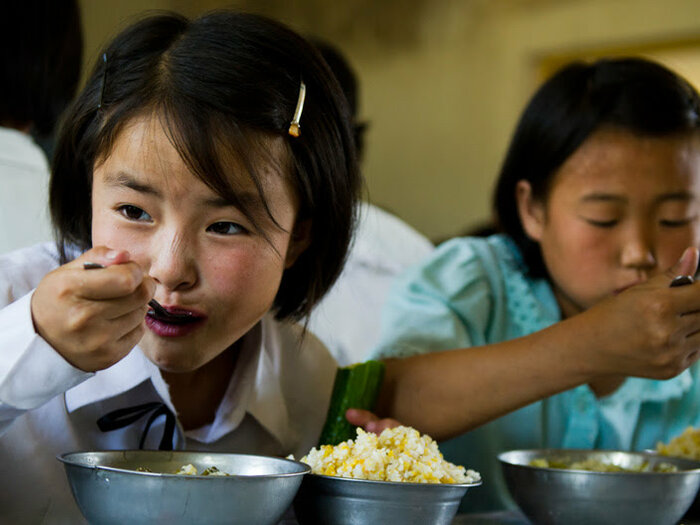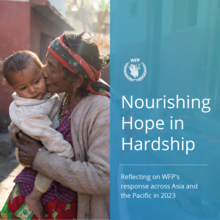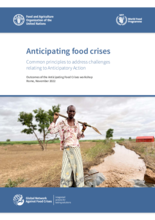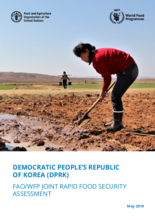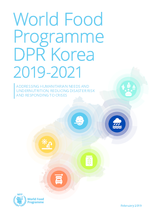Democratic People's Republic of Korea
- 10.7 million
- people are undernourished
- 18%
- of children are stunted (impaired growth and development due to chronic malnutrition)
- 25.9 million
- population
The Democratic People’s Republic of Korea (DPRK) continues to face a wide range of food and nutrition security challenges, which add to the protracted humanitarian situation in the country. Agriculture annually falls short of meeting food needs, due to shortages of arable land, lack of access to modern agricultural equipment and fertilizers, and recurrent disasters.
An increase in climate-related disasters sees droughts, floods, typhoons and heatwaves causing soil leeching, erosion, landslides and damage to crops and infrastructure. Even minor disasters can significantly reduce agricultural production and the availability of food, stressing communities’ already limited coping capacities. According to INFORM Global Risk Index 2021, DPRK ranked 29th among 191 countries for such disasters, and was placed in the high-risk category.
What the World Food Programme is doing in the Democratic People's Republic of Korea
-
Nutrition
-
When possible, WFP provides specialized nutritious food to 1 million pregnant women, nursing mothers and children, helping to reduce acute and chronic malnutrition. These fortified foods include blended cereals or biscuits with added protein, vitamins and minerals, which boost the micronutrients, fats and proteins in people’s daily diets. WFP targets this assistance to supported institutions including nurseries, hospitals, paediatric wards and some boarding schools. WFP also provides support to the factories that produce fortified foods.
-
DIsaster risk reduction
-
When possible, WFP works to reduce communities’ vulnerability to climate shocks with disaster risk-reduction measures. This helps mitigate climate risk, reduce the need for humanitarian action and contribute to food security by addressing threats to agricultural land and production. Activities – which include repairing embankments, dredging rivers, planting trees and improving soils to restore and protect the environment – also support training, especially among women, creating temporary employment and supplementing families’ food stocks
-
Crisis response
-
WFP maintains the capacity to provide in-kind emergency food assistance to crisis and disaster-affected communities when required, ensuring those affected have access to food in times of emergency.
Democratic People's Republic of Korea news releases
Go to pagePartners and donors
Find out more about the state of food security in Democratic People's Republic of Korea
Visit the food security analysis pageOperations in Democratic People's Republic of Korea
Contacts
Office
P.O. Box 27, Munsudong
North Korea

